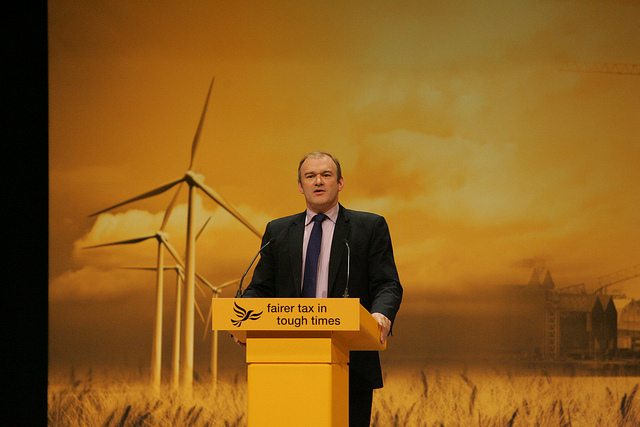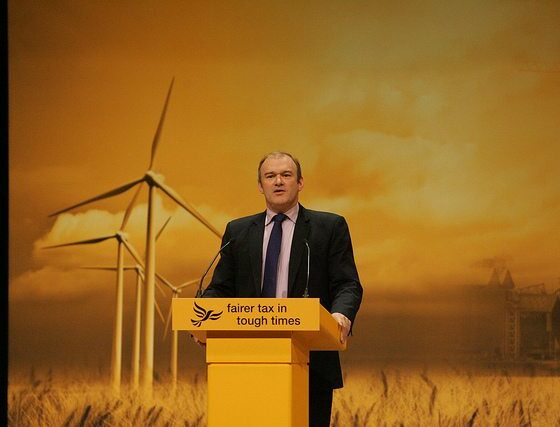

Energy
Ed Davey faces judicial review over alleged illegal solar policy U-turn
Four of the largest solar industry operators have this week announced plans to formally request a judicial review into the government’s plans to end state support for solar farms.
Solar developers Solarcentury, Lark Energy, TGC Renewables, and Orta Solar Farms, with a combined 800 megawatt (MW) supply chain worth over £800 million, have formally requested the judicial review, in partnership with Prospect Law.
The review will place the Department for Energy and Climate Change (DECC), headed by minister Ed Davey, at the centre of yet another major legal battle over overtly harsh anti-solar policies, making this the third major legal battle over subsidy cuts.
Last month, Davey was faced with a £132 million fine for retrospective cuts to the Feed-in Tariff (FiT) scheme, which supported smaller businesses, primarily in the domestic solar market.
However, the latest move by Davey will end the Renewables Obligation scheme, which supports larger solar farms and industrial developers – two years ahead of schedule.
Ben Cosh, managing director of TGC Renewables, one of the four companies leading the judicial review, said, “The pace of British solar innovation means costs are plummeting, solar is on the verge of becoming the cheapest renewable energy source, and there’s a real chance it can give gas a run for its money.
“Solar is tantalisingly close to becoming subsidy free, meaning cheaper bills for consumers, and we want to achieve this goal as quickly as possible. All we need from Ed Davey is stable and lawful policy, but instead he has yet again pulled the rug from under the industry’s feet.”
DECC believe that it is the taxpayers who will be burdened with sustaining the solar industry, and in recent months has shown a greater favourability of wind over solar.
The claimants fear the cuts will burden an industry that is still too vulnerable to stand independently, which could cost the solar industry large numbers of jobs and millions of pounds of income.
Leonie Greene, head of external affairs at the Solar Trade Association, said, “Sadly we’re not surprised to see this legal action, which reflects the despair felt by large-scale solar developers across Britain at another sudden policy change from the government.
“This damaging interference comes despite record levels of public popularity and the record cost reductions achieved by the UK solar power industry.”
Photo source: Liberal Democrats via Flickr
Take our 2014 reader survey and you could win an iPad, Kindle or donation to a charity of your choice.
Further Reading:
Renewable energy accounted for 15% of UK electricity in 2013
Centrica questions Ofgem’s profits claim as British Gas half-year takings fall
‘No fracking on my watch unless proven safe’, says Northern Ireland environment minister
Last chance for investors to receive 7.5% return on wind turbine investment
Investment in wind and solar energy needed to avoid water crisis, study warns


 Environment12 months ago
Environment12 months agoAre Polymer Banknotes: an Eco-Friendly Trend or a Groundswell?

 Features11 months ago
Features11 months agoEco-Friendly Cryptocurrencies: Sustainable Investment Choices

 Features12 months ago
Features12 months agoEco-Friendly Crypto Traders Must Find the Right Exchange

 Energy11 months ago
Energy11 months agoThe Growing Role of Solar Panels in Ireland’s Energy Future





























